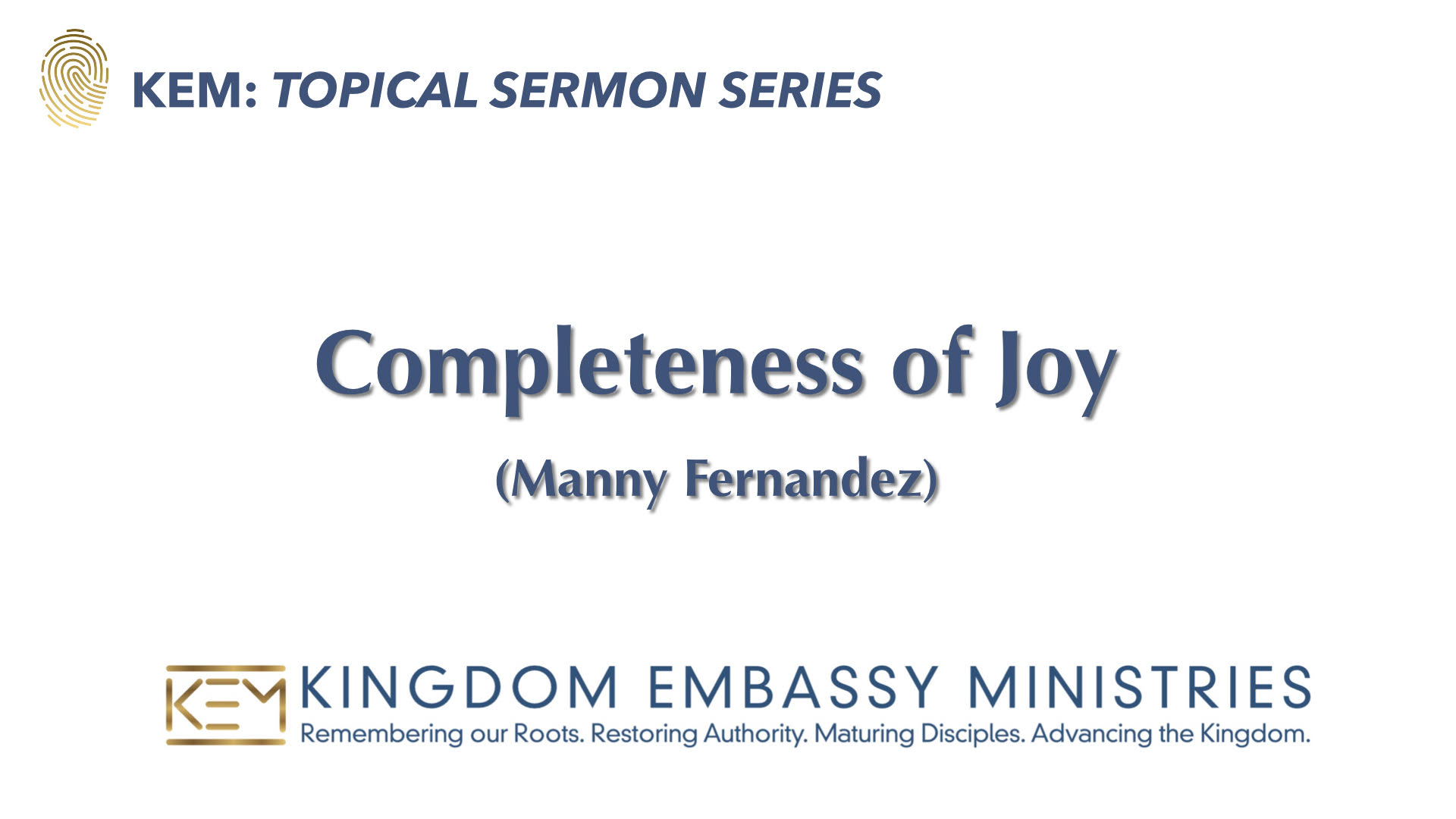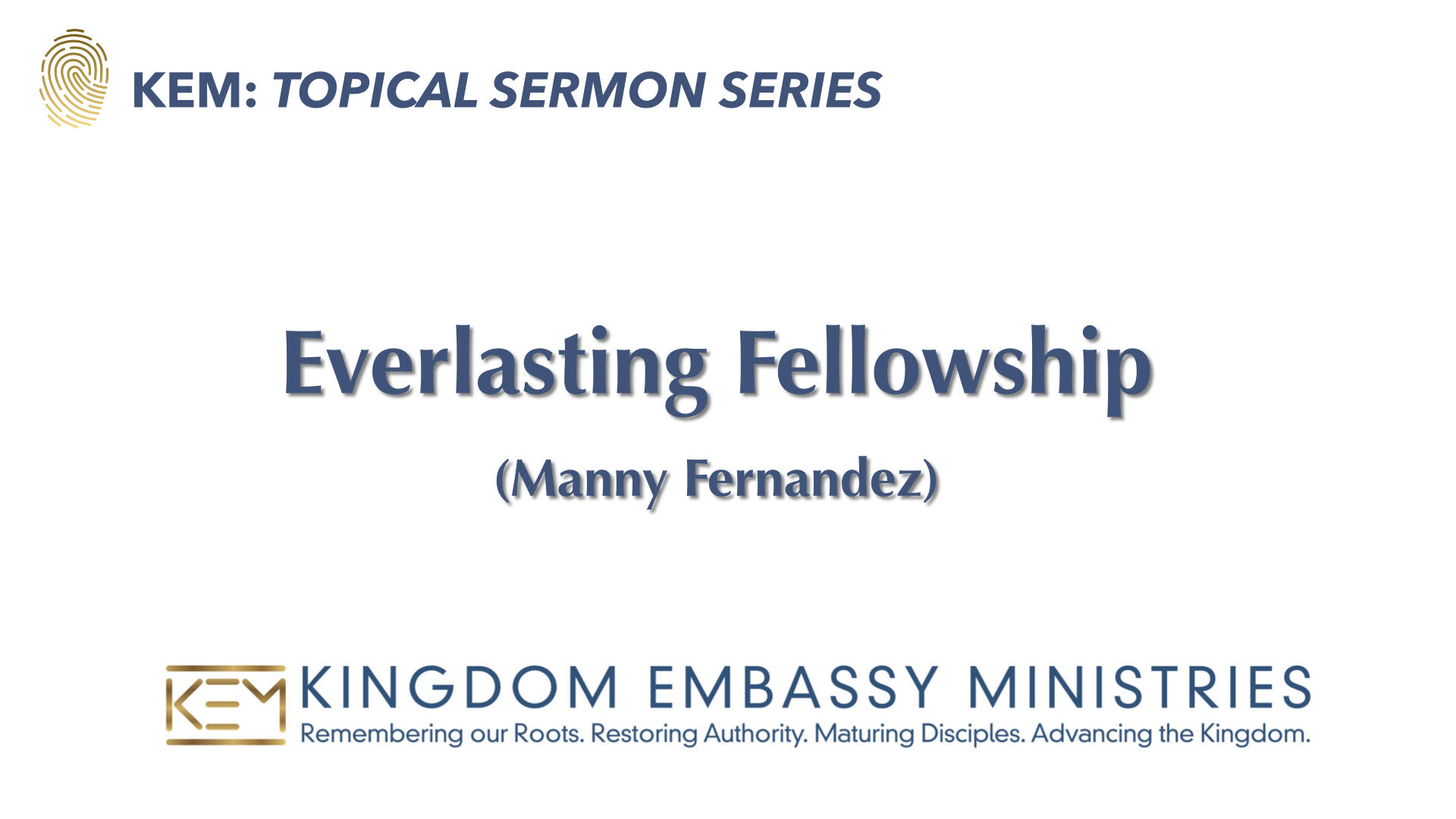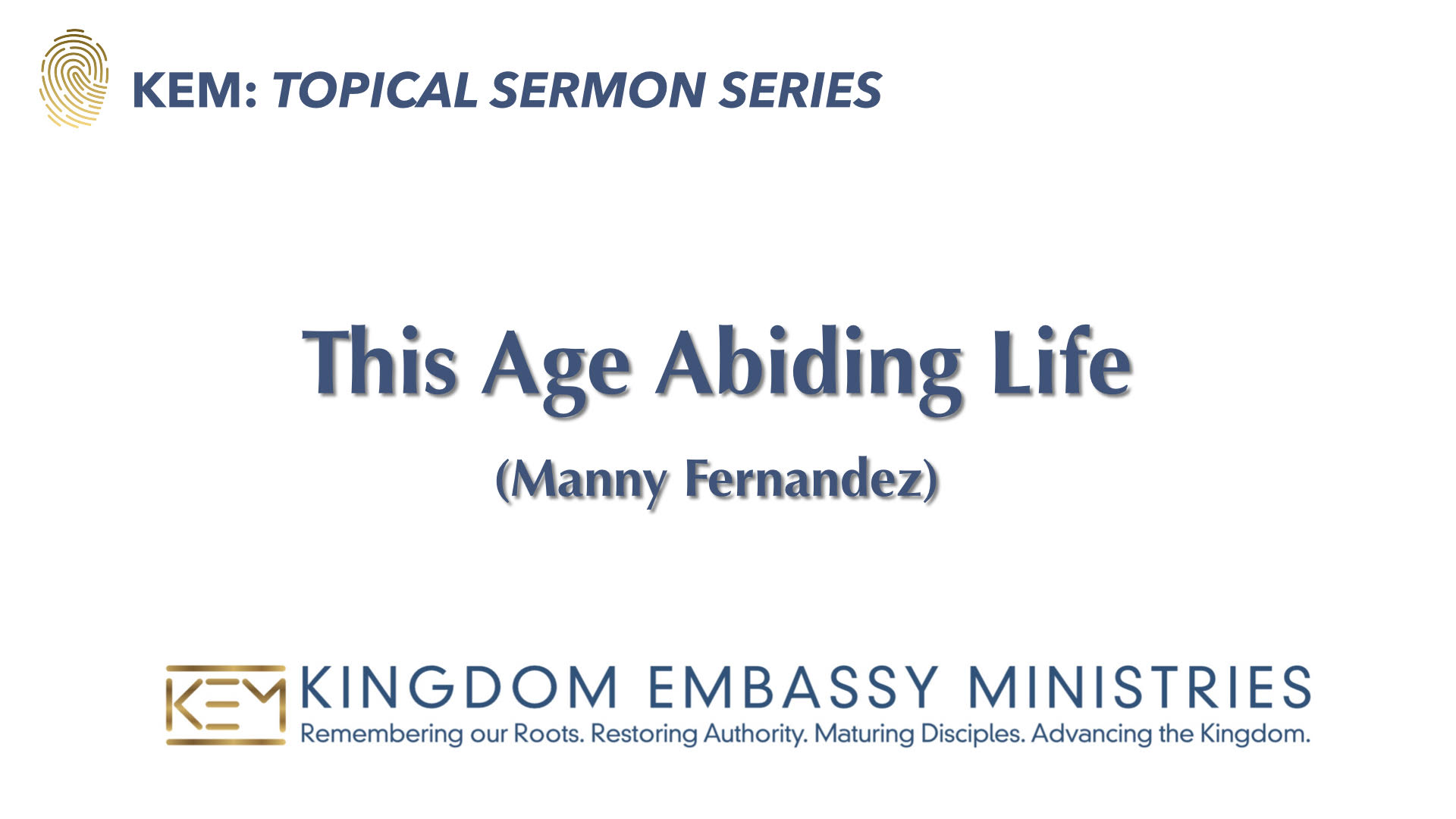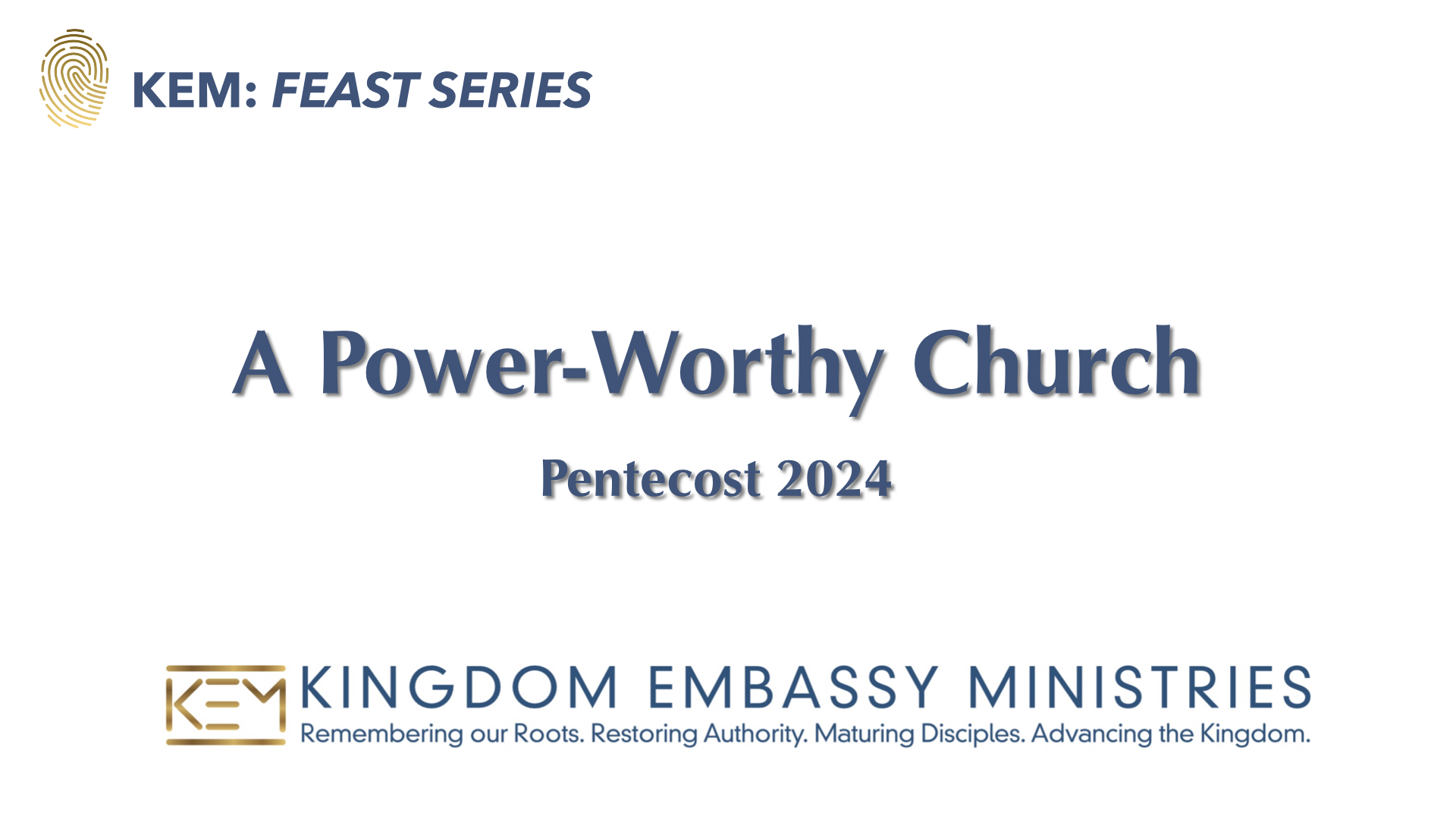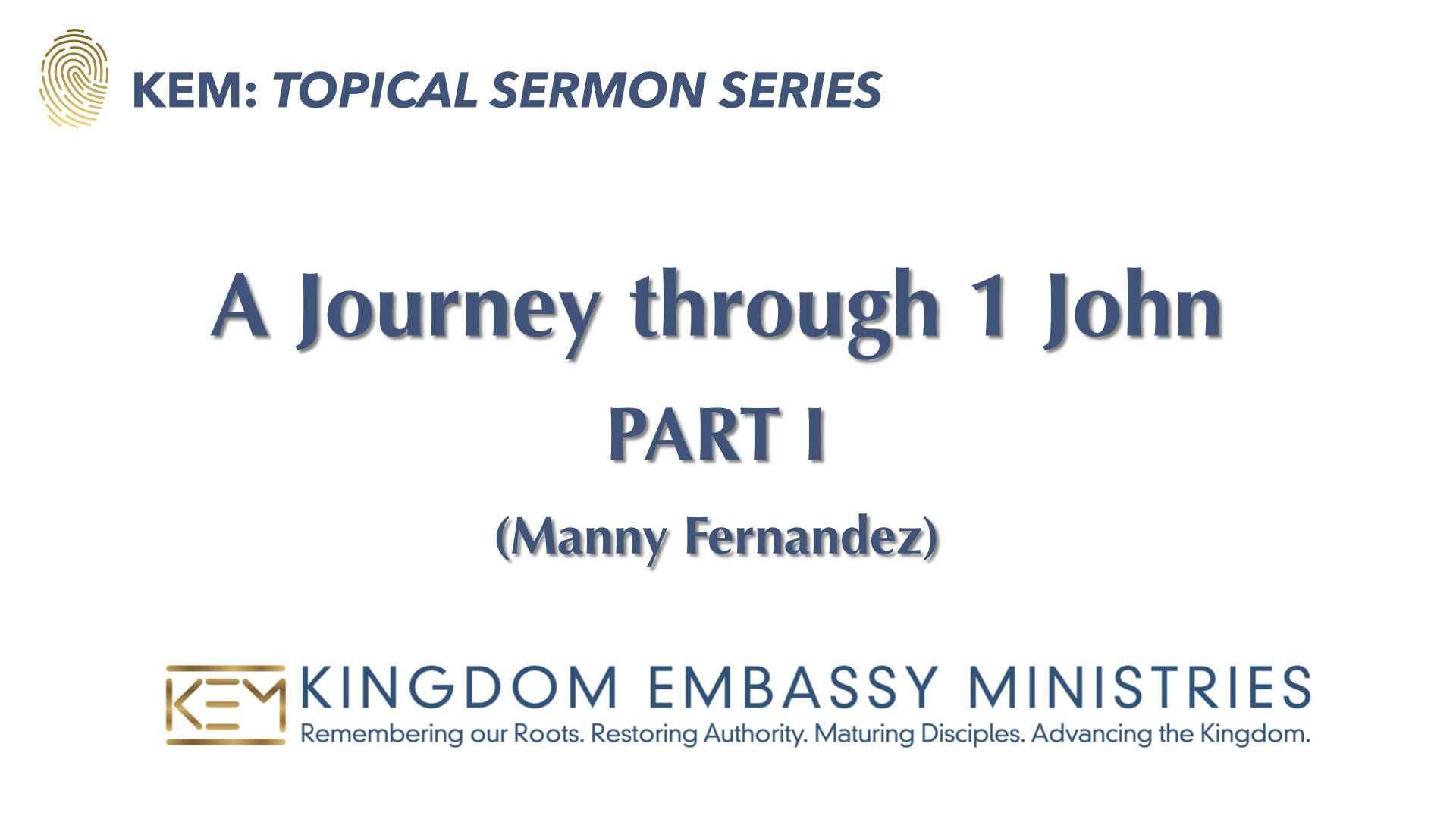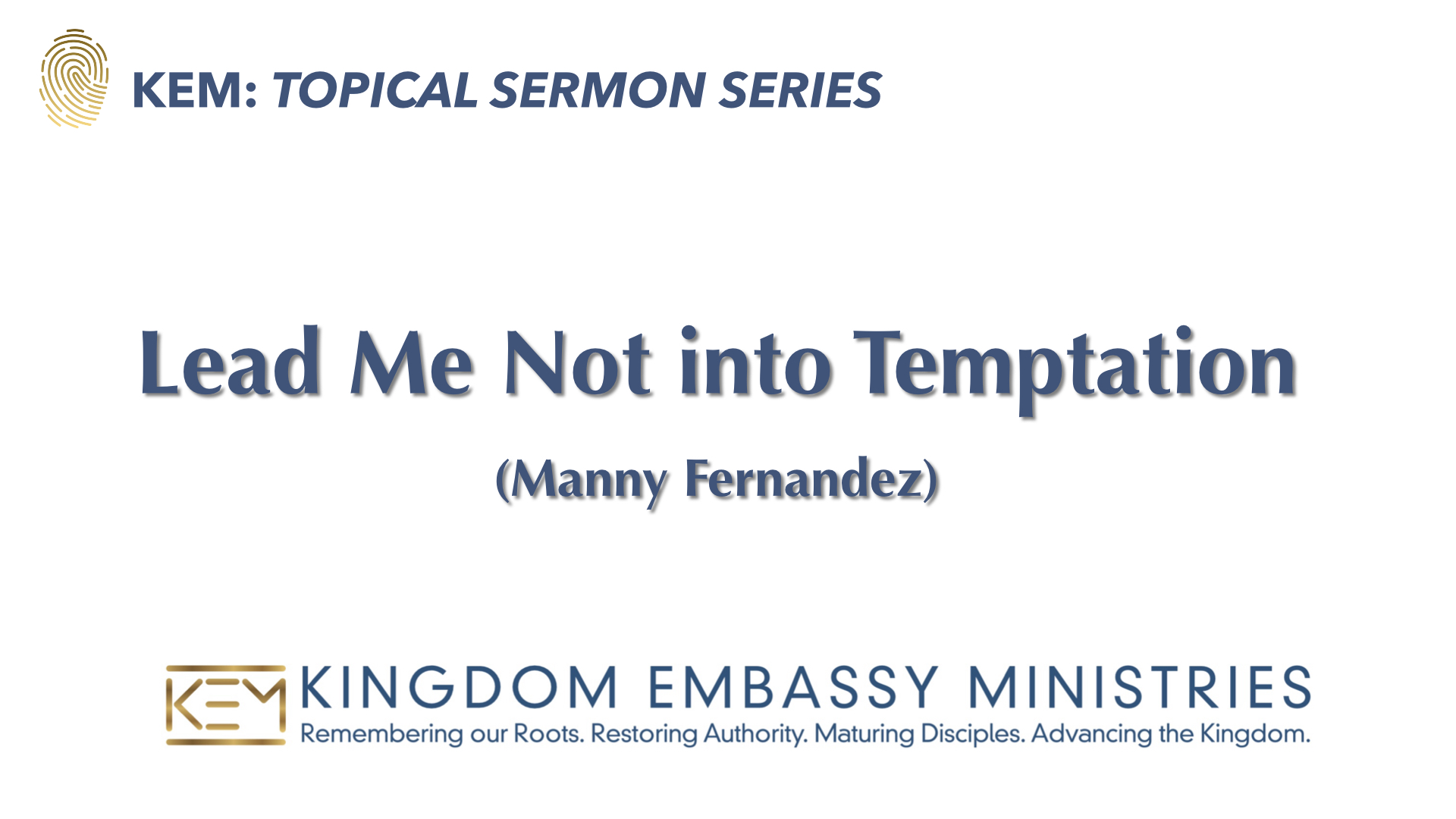Sermon Notes & Videos
2024-06-28 | Completeness of Joy | Manny Fernandez
“...And these things we write to you that your joy may be full.” I John 1:4 NKJV "...that by all this by this all men shall know that [...]
2024-06-21 | Everlasting Fellowship | Manny Fernandez
“...that which we have seen and heard we declare to you, that you also may have fellowship with us; and truly our fellowship is with the Father and [...]
2024-06-15 | This Age Abiding Life | I John 1:2b | Manny Fernandez
KEM Topical Sermon Series: I John 1:2b “the life was manifested, and we have seen, and bear witness, and declare to you that eternal life which was with [...]
2024-06-07 | Pentecost 2024 | A Power Worthy Church
Sermon Notes | Are you perfectly content with commemorating Hallmark holidays that are dedicated to man-made traditions, while completely ignoring the Feasts of the Lord—Yahweh’s Biblical Holidays? When [...]
2024-05-31 | A Journey through I John | Manny Fernandez
“That which was from the beginning, which we have heard, which we have seen with our eyes, which we have looked upon, and our hands have handled, concerning [...]
2024-05-24 | Romans 11:16-24 | The Consummate Gardner
Weekly Scriptures | Sermon Notes | One word, two pronunciations, different but related meanings, both are applicable here. One is a verb used to describe an action or [...]
2024-05-17 | Romans 11:1-15 | One New Man
Weekly Scriptures | Sermon Notes | The Father has been in the business of separating things from the beginning. He separated light from darkness; water in the firmament [...]
2024-05-10-Romans | 10:14-21 | Discriminating Questions
Weekly Scriptures | Sermon Notes | Romans is a letter filled with questions. Right from the start of exploration into this deep “theological treatise,” we discovered that ninety-two [...]
2024-05-03 | Romans 10:1-13 | Cognitive Dissonance
Weekly Scriptures | Sermon Notes | When your behavior does not align with your values or beliefs, that discomfort you feel in your inner being is known as [...]
2024-04-26 | Romans 9:19-33 | Pavlov’s Humans
Weekly Scriptures | Sermon Notes | You came prepackaged with an ensemble of built-in character traits. These personal attributes seem to be part of your inborn nature. Many [...]
2024-04-22 | Passover 2024
2024 Passover Haggadah: The Telling | From Anointing to Resurrection | | Welcome to the Passover with Kingdom Embassy Ministries When your children ask, what will [...]
2024-04-19 | John 13-17 | Preparation Day
Sermon Notes | From Anointing to Resurrection | Asking questions is one of the most effective ways to engage the mind on a deeper level. Paul and Y’shua [...]
2024-04-12 | Romans 9:1-18 | Lets Get Historical
Weekly Scriptures | Sermon Notes | The entirety of the contradiction and denial can be summed up with this one ridiculous statement, indicative of the disease of historical [...]
2024-04-05 | Romans 8:33-39 | No Weapon Shall Prosper
Weekly Scriptures | Sermon Notes | It won’t always seem true, but feelings can be fickle. It’s not that they are bad, or that you shouldn’t have them, [...]
2024-03-29 | I Corinthians 10:1-13 | Lead Me Not Into Temptation
”Moreover, brethren, I do not want you to be unaware that all our fathers were under the cloud, all passed through the sea, all were baptized into Moses [...]
2024-03-22 | Romans 8:28-32 | The Winning Hand
Weekly Scriptures | Sermon Notes | At times, ideas you’ve never before considered breeze across your mind and suddenly the mundane becomes utterly profound. You fall deep inside [...]
2024-03-15 | Romans 8:23-27 | The Mind of God
Weekly Scriptures | Sermon Notes | At times there are just no words. Have you ever felt that way: when your experience exceeds explanation; when the circumstance defies [...]
2024-03-08 | Romans 8:18-22 | The Unveiling
Weekly Scriptures | Sermon Notes | Making a public presentation of something new or renovated is a common practice. We pull the veil from a new statue; drop [...]
2024-03-01 | Romans 8:1-17 | Hand Picked Orphans
Weekly Scriptures | Sermon Notes | Everyone wants to be part of a family. In fact, God created the human family as the perfect representation of the Divine [...]
2024-02-23 | Romans 7:15-25 | Shards of History
Weekly Scriptures | Sermon Notes | This is the diary of a man in the process of discovering what it means to be born-again and empowered by the [...]
2024-02-16 | Romans 7:1-14 | The Operating System of Creation
Weekly Scriptures | Sermon Notes | It’s all a matter of perspective. As the years of life pass, certain things come into focus much more so than when [...]

